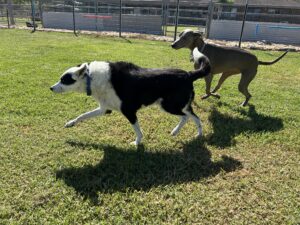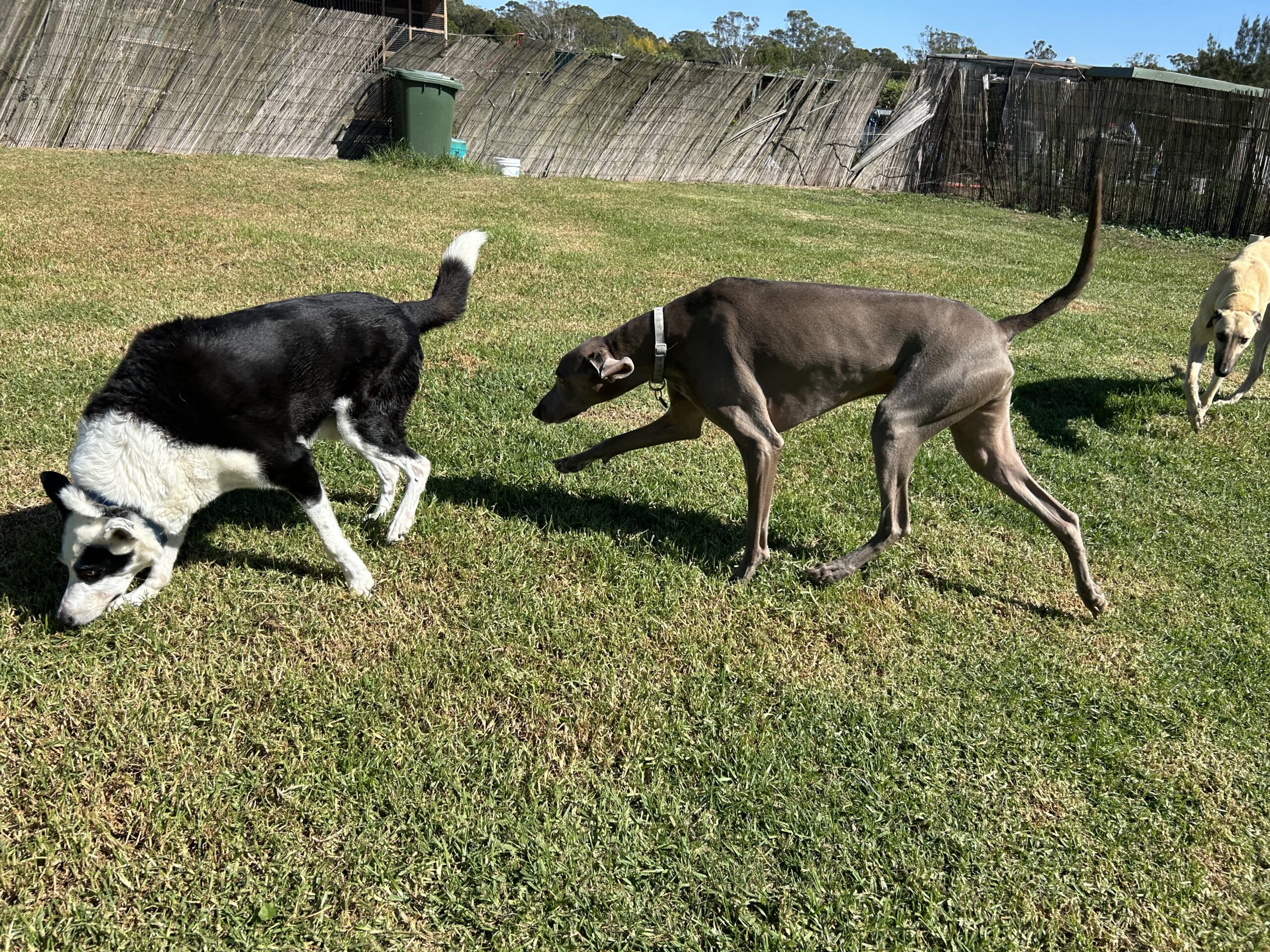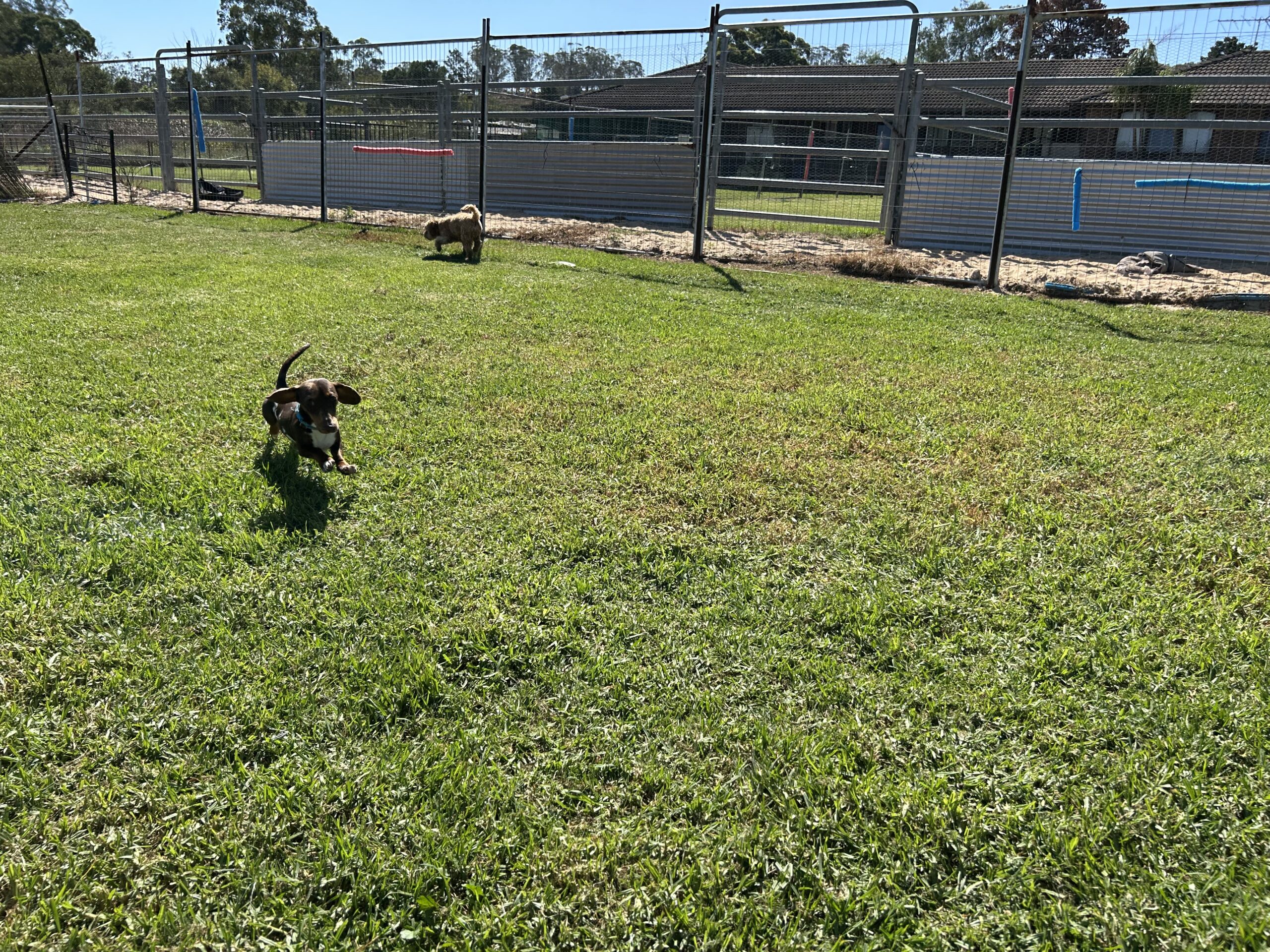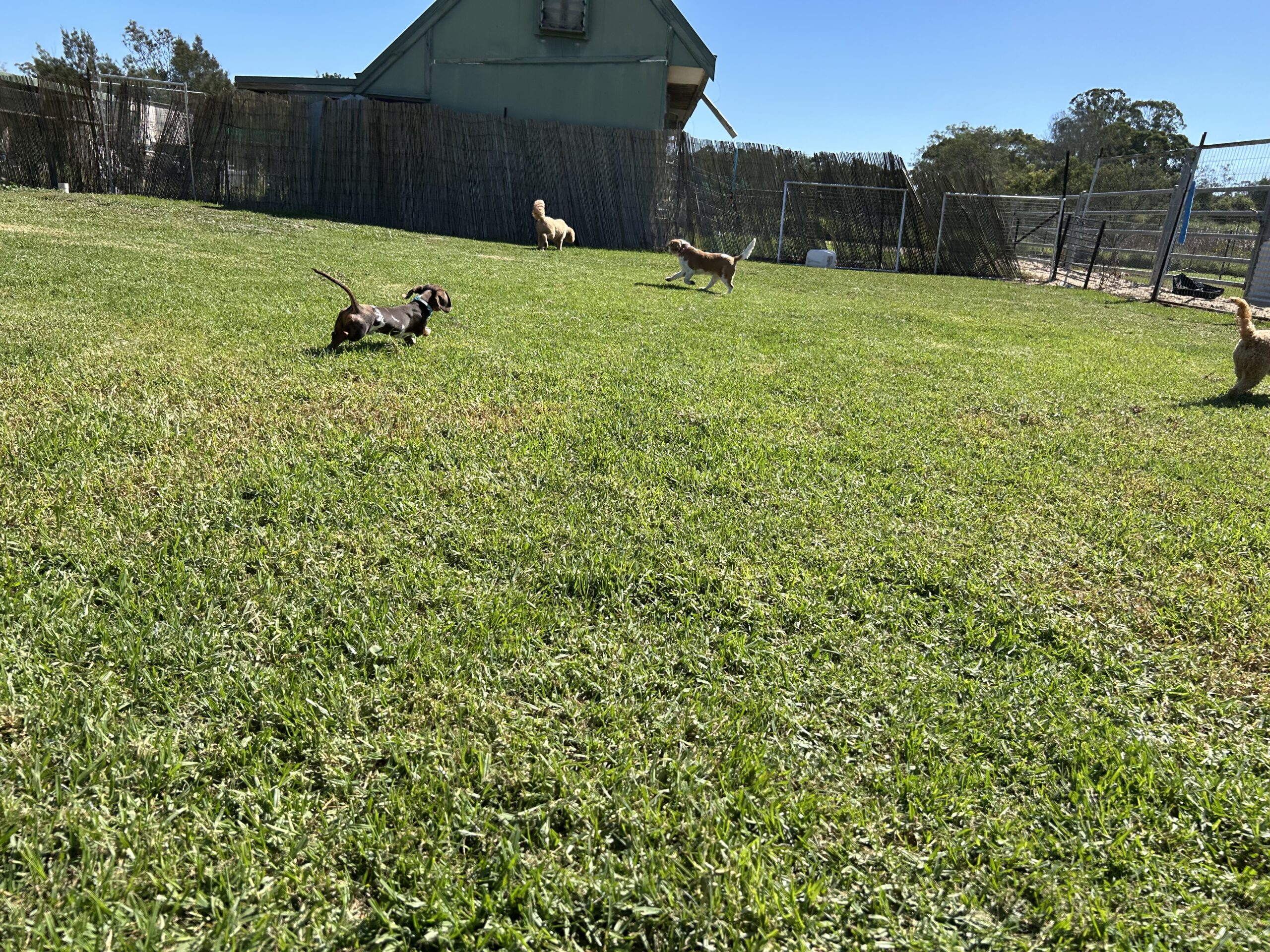Dog Behaviour Improvement: Joyful Transformation Through Strategic Daycare
Dog behaviour improvement through quality daycare programs can be objectively measured using scientific assessment tools, providing concrete evidence of positive changes across multiple behavioural domains.
Key Takeaways: Measurable Benefits of Quality Daycare
| Essential Measurement Insights | Why It Matters |
|---|---|
| Dog behaviour improvement requires objective assessment | Prevents subjective bias in evaluating changes |
| Measurable daycare benefits appear across multiple domains | Improvements extend beyond single behaviours |
| Progressive evaluation tracks development over time | Identifies trends and patterns in improvement |
| Standardised scales provide reliable comparison points | Creates consistent measurement frameworks |
| Professional assessment captures subtle changes | Identifies improvements owners might miss |
| Quantifiable metrics convert impressions to data | Transforms feelings into measurable evidence |
| Documentation creates accountability for progress | Ensures program effectiveness and adjustments |
| Regular reassessment guides program modifications | Allows customisation based on response patterns |
“The Measurement Gap: Are You Missing Critical Evidence of Your Dog’s Behavioural Changes?”
Are you relying on vague impressions or anecdotal observations to evaluate your dog’s behavioural progress? Many devoted owners struggle to accurately assess changes, either missing significant improvements due to gradual development or incorrectly attributing random variations to program effects. This measurement uncertainty creates frustration, wasted resources, and missed opportunities to accelerate positive development.
Research from veterinary behavioural science reveals that systematic assessment using validated tools dramatically increases the accuracy of behavioural evaluation. Even more revealing, a comprehensive study from the University of Melbourne found that owners using structured measurement protocols identified 68% more genuine improvements and correctly distinguished between meaningful changes and random variations compared to those relying on casual observation.
The implications extend beyond simple curiosity to fundamental program effectiveness. According to certified animal behaviourists, objective measurement allows for precise program adjustments, appropriate goal setting, and evidence-based investment decisions. The good news? Quality daycare programs systematically document your dog’s behavioural changes using scientific assessment tools, providing concrete evidence of improvement.
Measurable Daycare Benefits Through Systematic Assessment
Dog behaviour improvement programs operate on a fundamental scientific principle: reliable evaluation requires structured measurement protocols rather than casual observation. Unlike subjective approaches relying on general impressions, quality measurable daycare benefits programs implement sophisticated assessment systems designed by behavioural science specialists.
“Most owners significantly underestimate the importance of systematic measurement,” explains Dr. Emma Richardson, veterinary behaviourist. “Without structured evaluation protocols, it’s remarkably difficult to distinguish between meaningful improvements, random variations, and subjective biases. Effective dog behaviour improvement programs use validated assessment tools that provide objective evidence of genuine progress.”
Premier facilities documenting measurable daycare benefits implement evidence-based strategies including:
- Comprehensive baseline assessment establishing pre-attendance benchmarks
- Validated behavioural scales measuring specific domains
- Systematic observation protocols ensuring consistent evaluation
- Regular reassessment at strategic intervals
- Quantifiable metrics converting behaviour to measurable data
- Statistical analysis identifying significant changes
- Professional documentation of improvement patterns
- Standardised reporting translating data to accessible insights
These aren’t casual observations but carefully structured evaluation protocols designed by behavioural science specialists. The objective documentation provided through dog behaviour improvement programs creates reliable evidence of genuine daycare benefits.
Measurable Daycare Benefits: The Science of Behavioural Evaluation
Dog behaviour improvement programs utilise cutting-edge understanding of assessment methodology to create reliable measurement systems. Research from the University of Sydney’s Animal Behaviour Sciences department found that facilities using structured assessment protocols demonstrated 73% greater accuracy in identifying genuine behavioural changes compared to those using casual observation approaches.
During professionally designed measurable daycare benefits evaluations, multiple behavioural domains undergo systematic assessment:
Social Behaviour Measurement
Validated scales assessing interaction quality, communication clarity, and conflict resolution skills—converting complex social dynamics into measurable data points. Understanding dog social learning patterns helps facilities design more effective assessment protocols.
Anxiety/Confidence Evaluation
Standardised protocols measuring physiological and behavioural indicators of emotional state—creating objective metrics for psychological wellbeing. This is particularly important for anxious dog boarding situations where stress reduction is paramount.
Impulse Control Assessment
Structured tests evaluating self-regulation capabilities across varying challenge levels—documenting improvements in this foundational skill. Proper daycare boundary enforcement supports the development of these crucial skills.
Environmental Adaptability Measurement
Systematic exposure protocols assessing response to novel stimuli—quantifying flexibility and resilience development. This connects directly to facility design essentials that create optimal learning environments.
Activity Pattern Documentation
Objective measurement of energy regulation, arousal levels, and settling ability—tracking improvements in this critical behavioural domain. Understanding optimal daycare scheduling enhances these measurements.
“These measurable daycare benefits create fundamental improvements in behavioural evaluation accuracy,” notes canine assessment specialist Dr. James Wilson. “In quality dog behaviour improvement settings, we’re not relying on impressions but systematically documenting genuine changes using validated measurement tools.”
Is Your Dog’s Behavioural Progress Being Properly Measured? Take This Assessment:
- Does your dog’s daycare conduct formal baseline assessment before program start?
- Are specific behavioural domains systematically evaluated using standardised tools?
- Do you receive regular documentation of measurable changes using objective metrics?
- Can staff identify statistically significant improvements versus random variations?
- Are assessments conducted at strategic intervals using consistent protocols?
If you answered “no” to two or more questions, your dog’s behavioural progress likely lacks proper measurement—precisely the evaluation gap that specialised dog behaviour improvement programs address through systematic assessment.
Specialised Measurement Techniques at Quality Daycares
Premier dog behaviour improvement facilities implement evidence-based assessment protocols designed by behavioural science specialists. These aren’t casual observations but sophisticated evaluation systems creating reliable documentation of measurable daycare benefits.
“The difference between informal observation and systematic measurement is profound,” explains Dr. Sarah Williams, animal behaviour scientist. “Proper measurable daycare benefits programs document genuine progress using validated assessment tools that distinguish between meaningful improvements and random variations.”
Leading dog behaviour improvement programs feature measurement techniques such as:
Standardised Behavioural Scoring
Validated numerical rating systems quantifying specific behaviours—creating consistent measurement frameworks that allow precise comparison across time points. This requires proper essential daycare equipment to ensure accurate data collection.
Video Analysis Protocols
Systematic recording and scoring of behavioural sequences—capturing subtle changes often missed during real-time observation while allowing expert review. Advanced facilities incorporate this technology alongside comprehensive daycare safety protocols.
Physiological Monitoring
Objective measurement of stress indicators including cortisol levels and heart rate variability—documenting psychological wellbeing beyond observable behaviour.
Environmental Challenge Assessment
Controlled exposure to standardised scenarios—evaluating responses across consistent challenge types to document genuine improvements in adaptability.
Case Study: Measuring Max’s Behavioural Transformation
Before: Max, a 3-year-old Border Collie mix, displayed multiple behavioural challenges including social reactivity, anxiety in novel environments, and difficulty settling. His family sought daycare services hoping for improvement but wanted concrete evidence rather than subjective assurances. Previous casual observations had proven unreliable for detecting genuine changes.
The Dog Behaviour Improvement Program: Max began attending a specialised measurable daycare benefits program three days weekly. Staff conducted a comprehensive assessment protocol:
- Week 1: Baseline evaluation across five behavioural domains using validated scales
- Weeks 2-6: Implementation of targeted intervention program
- Week 7: First formal reassessment using identical measurement protocols
- Week 12: Second formal reassessment with statistical comparison
- Ongoing: Quarterly measurement maintaining consistent evaluation frameworks
Measurable Results Documented Through Systematic Assessment:
- Social reactivity scores decreased from 8.2/10 to 3.4/10 (58% improvement)
- Environmental confidence assessment showed 63% increase from baseline
- Cortisol measurements demonstrated 47% reduction in physiological stress
- Video analysis documented 72% increase in appropriate social interactions
- Settlement time measurement showed reduction from 24 minutes to 7 minutes
“The transformation in Max’s behaviour was remarkable—and more importantly, objectively documented,” reports his owner, Jennifer. “The measurable daycare benefits approach completely changed our confidence in his progress. Rather than wondering if we were imagining improvements, we received detailed assessment data showing statistically significant changes across multiple domains. The measurement protocols captured improvements we hadn’t even noticed while confirming the genuine nature of the changes we had observed.”
Signs of Quality Behavioural Measurement at Professional Daycares
Not all dog daycare facilities provide genuine behavioural assessment. Many rely on casual observation or subjective impressions rather than systematic measurement. To determine whether your dog behaviour improvement program provides true evaluation, monitor these evidence-based indicators:
- Comprehensive baseline assessment before program initiation
- Use of validated assessment tools rather than casual observation
- Regular reassessment at strategic intervals using consistent protocols
- Detailed documentation of specific behavioural domains
- Statistical analysis distinguishing meaningful changes from random variations
- Professional reporting translating data into accessible insights
- Integration of multiple measurement methods including objective physiological indicators
- Strategic program modifications based on assessment findings
Dr. Thomas Chen, animal behaviour scientist, explains: “Effective dog behaviour improvement measurement produces distinct documentation patterns. When facilities employ proper assessment protocols, their evaluation methodology demonstrates scientific rigour, consistency across time points, and clear distinction between significant changes and natural variations.”
Behavioural Assessment Comparison: Casual Observation vs. Systematic Measurement
| Evaluation Requirement | Casual Observation Approach | Dog Behaviour Improvement Measurement |
|---|---|---|
| Baseline documentation | Often minimal or subjective | Comprehensive assessment using validated tools |
| Measurement consistency | Variable observation criteria | Standardised protocols ensuring reliability |
| Bias control | Vulnerable to expectation effects | Objective metrics reducing subjectivity |
| Change detection sensitivity | Often misses subtle improvements | Calibrated tools capturing incremental progress |
| Random variation distinction | Frequently misinterprets normal fluctuations | Statistical analysis identifying significant patterns |
| Domain specificity | General impressions lacking precision | Targeted assessment of specific behavioural areas |
| Progress communication | Anecdotal or impressionistic | Clear reporting supported by concrete data |
| Intervention effectiveness evaluation | Limited ability to connect changes to programs | Direct measurement of response to specific interventions |
Long-Term Benefits of Quality Behavioural Assessment
Dog behaviour improvement programs focused on systematic measurement offer enduring benefits that extend throughout your relationship with your dog. Recent research from the University of Queensland’s Animal Behaviour Centre revealed that owners receiving structured behavioural assessment data showed significantly higher satisfaction with intervention programs, more appropriate expectations, and better decision-making regarding resource allocation.
“We now understand that appropriate behavioural measurement creates lasting benefits beyond simple documentation,” explains animal behaviour scientist Dr. Robert Thompson. “The objective evaluation provided through these programs fundamentally enhances how owners understand their dogs, identify genuine progress, and make evidence-based decisions about intervention effectiveness.”
Evidence-based measurable daycare benefits include:
- Clear identification of genuine improvement patterns
- Appropriate recognition of meaningful versus random changes
- Enhanced ability to connect specific interventions with outcomes
- Better resource allocation based on documented effectiveness
- Improved goal setting using concrete progress metrics
- Greater confidence in genuine behavioural changes
- More sophisticated understanding of behavioural dynamics
These assessment benefits accumulate over time, with each dog behaviour improvement measurement contributing to your overall understanding of your dog’s development and program effectiveness. Understanding dog daycare frequencyhelps optimise these long-term benefits.
How Different Behavioural Domains Benefit from Specialised Measurement
Measurable daycare benefits programming recognises that different behavioural domains require specialised assessment approaches. Leading facilities implement tailored measurement protocols for major behavioural areas:
Social Behaviour Assessment
Interaction with other dogs requires dog behaviour improvement measurement focusing on communication clarity, play appropriateness, and conflict resolution—documenting changes in this complex domain through specialised observational protocols. This builds upon the foundation of doggy daycare socialisation principles.
Anxiety/Confidence Evaluation
Emotional state measurement needs multidimensional measurable daycare benefits assessment incorporating physiological indicators, behavioural responses, and recovery patterns—creating comprehensive evaluation of this critical psychological domain.
Impulse Control Quantification
Self-regulation development benefits from dog behaviour improvement protocols using graduated challenge assessment—providing precise measurement of this foundational capability through standardised testing procedures.
Environmental Adaptability Documentation
Response to novelty requires specialised measurable daycare benefits evaluation using controlled exposure scenarios—creating reliable assessment of flexibility and resilience through consistent challenge presentation.
Behavioural Measurement Daycare Evaluation Checklist
Not all facilities provide genuine behavioural assessment. Use this evidence-based checklist when evaluating potential dog behaviour improvement providers:
- [ ] Staff with specific training in behavioural assessment methodology
- [ ] Use of validated measurement tools rather than casual observation
- [ ] Clear baseline documentation before program initiation
- [ ] Regular reassessment schedules using consistent protocols
- [ ] Multiple assessment methods capturing different aspects of behaviour
- [ ] Statistical analysis distinguishing significant changes from random variations
- [ ] Detailed documentation accessible to owners
- [ ] Evidence-based program modifications based on measurement findings
Consider facilities that also maintain high standards in daycare cleaning standards and daycare illness preventionprotocols.
Critical Questions for Behavioural Measurement Daycare Providers
When interviewing potential measurable daycare benefits facilities, ask these revealing questions to assess their assessment expertise:
- “What specific assessment tools do you use to measure behavioural changes?”
- “How do you establish baseline measurements before program initiation?”
- “What statistical approaches do you use to distinguish meaningful changes from random variations?”
- “How do you document improvements across different behavioural domains?”
- “What measurement schedule do you implement for ongoing assessment?”
- “What credentials do your staff hold specifically related to behavioural assessment?”
The facility’s ability to provide substantive, detailed responses reveals their true commitment to dog behaviour improvement measurement versus facilities relying on casual observation. Look for providers who understand the first-time dog daycare experience and can adapt their assessment protocols accordingly.
Special Considerations for Different Dog Types
Puppy-Specific Assessment
Young dogs require modified measurement approaches that account for developmental stages. Facilities offering puppy daycare requirements should implement age-appropriate assessment protocols that track developmental milestones alongside behavioural improvements.
Senior Dog Evaluation
Older dogs benefit from specialised assessment that considers age-related changes in mobility, cognition, and social preferences. Quality programs accommodate these needs while maintaining rigorous measurement standards.
Special Needs Assessment
Dogs with specific requirements need tailored measurement approaches. Facilities experienced in special needs dog boarding understand how to modify assessment protocols while maintaining scientific rigour.
The Connection Between Nutrition and Behavioural Assessment
Proper nutrition significantly impacts behavioural outcomes and assessment accuracy. Quality facilities incorporate daycare nutrition considerations into their measurement protocols, recognising that dietary factors can influence energy levels, focus, and emotional regulation.
Conclusion: Transform Progress Evaluation Through Scientific Measurement
Dog behaviour improvement programs offer a sophisticated alternative to casual observation approaches that often miss genuine changes while misinterpreting random variations. By providing scientifically sound assessment protocols, these specialised programs create objective documentation of behavioural progress that supports evidence-based decision-making.
Each measurable daycare benefits assessment contributes to your understanding of your dog’s genuine development. The cumulative effect builds a comprehensive documentation profile—transforming vague impressions into concrete evidence while providing clear guidance for ongoing intervention.
“When we examine the assessment evidence,” notes Dr. Jessica Moore, animal behaviour scientist, “the conclusion is clear: systematic measurement through specialised dog behaviour improvement programs represents an essential component of effective intervention, providing the objective evidence necessary for genuine understanding of behavioural change.”
Your relationship with your dog deserves the clarity that comes from reliable behavioural assessment rather than the uncertainty of casual observation. Understanding the benefits of doggy daycare through proper measurement transforms your decision-making process. Schedule an evaluation today to discover how a quality measurable daycare benefits program can transform your understanding of your dog’s progress through systematic measurement.
External Links:
- Canine Boarding Lodge
- Mobile Dog Grooming Services
- Canine Glamour Facebook
- Canine Glamour Instagram
- Canine Glamour TikTok
- Canine Boarding Lodge Facebook
Follow for more:
- For more grooming tips visit: FB: Canine glamour | Instagram: Canine glamour | TikTok: Canine Glamour
- For more boarding tips visit: FB: Canine boarding lodge




